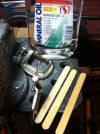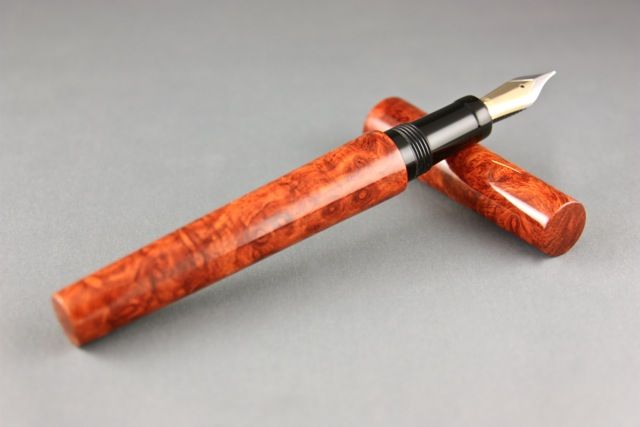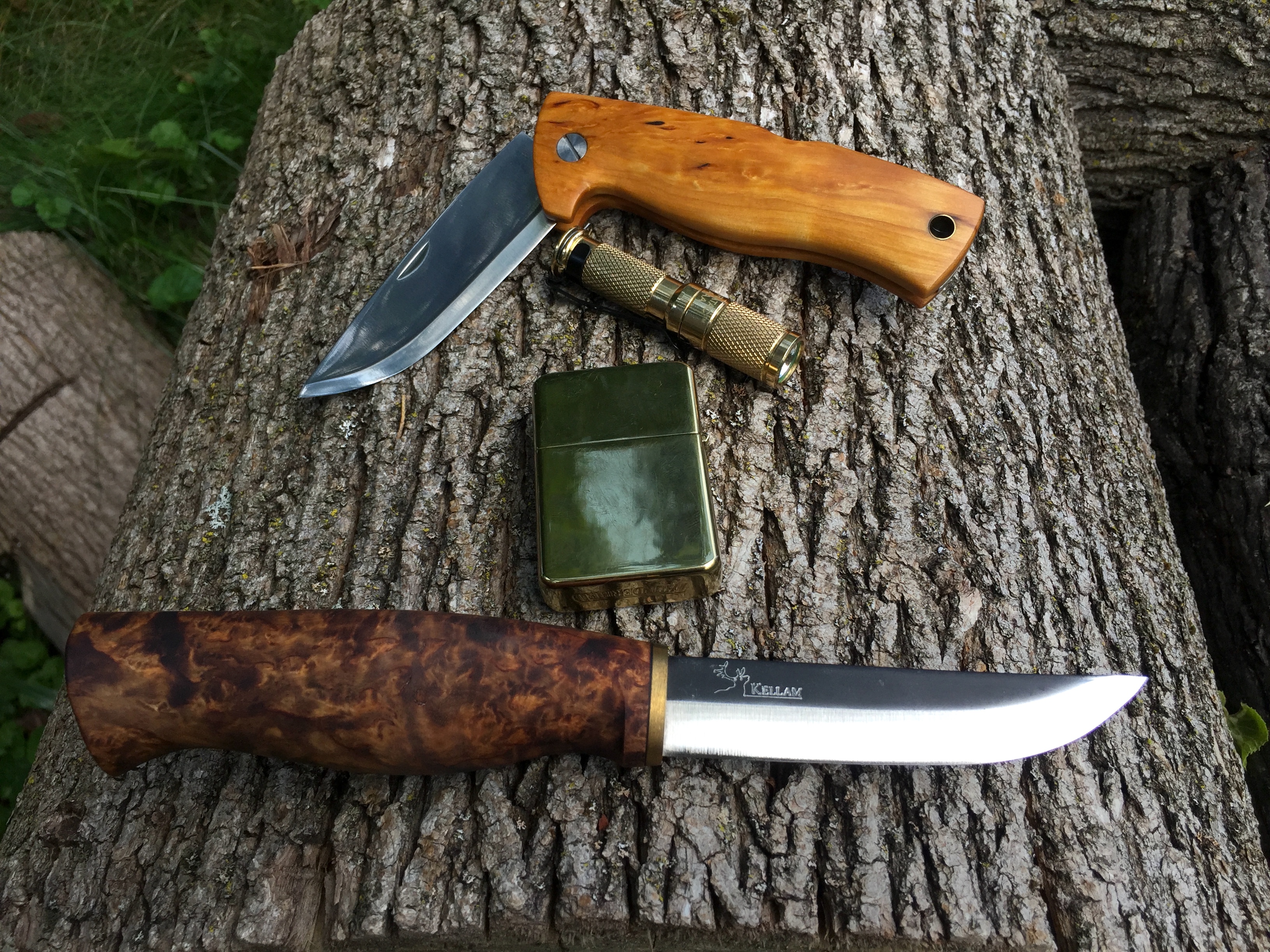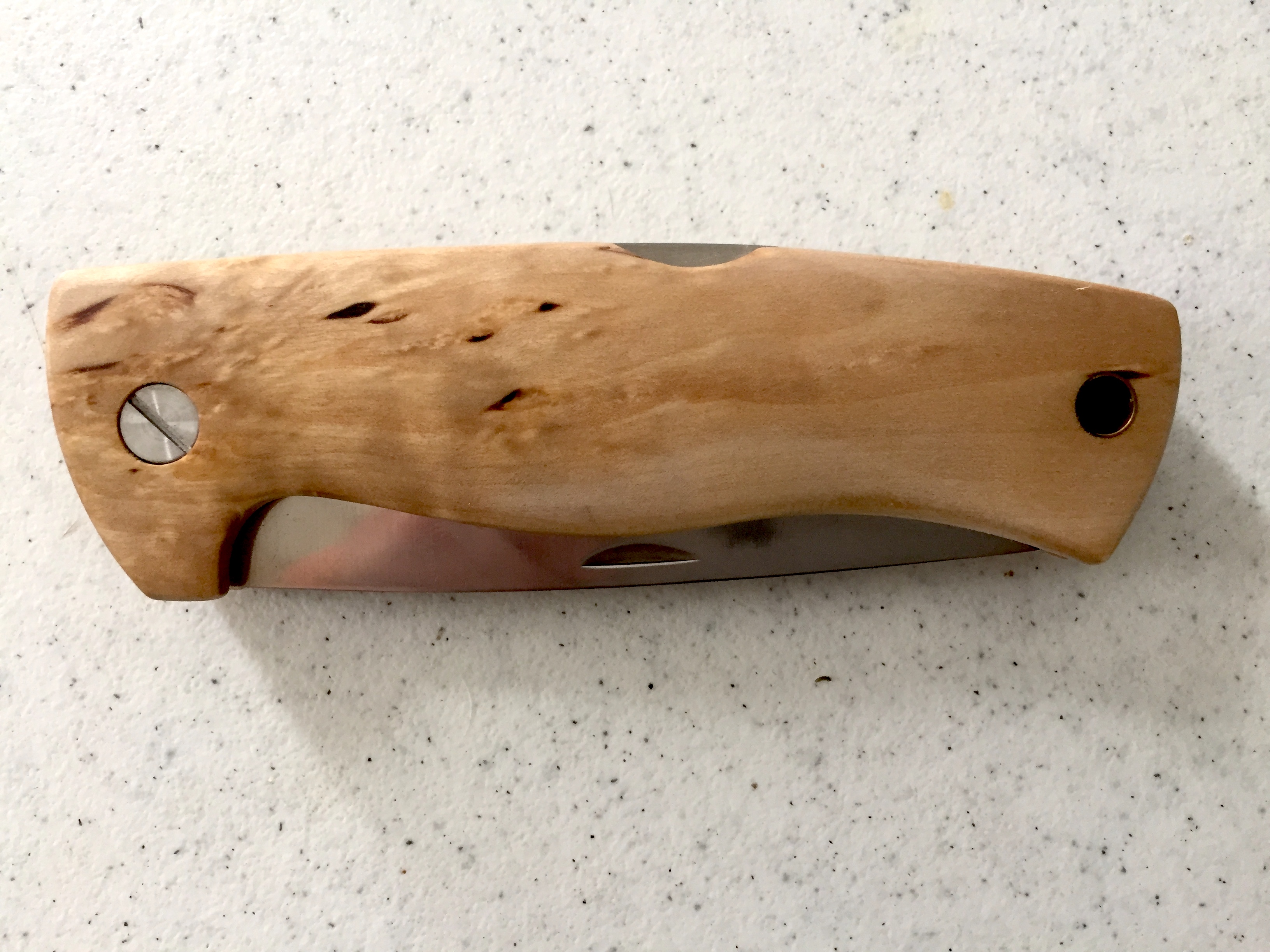the wood fibers soak it up and swell, turning them into wet noodles, and weakening the wood forever
ANNNNNNND we're back.
I needed a snack.
Before I got my snack I took out three super dry popsicle sticks that have been in my work shop for a decade or more (not from a wet 'sicle). I wiped a good wet coat of mineral oil on one of them (both sides, the edges and the ends) and left it lie while I got my snack.
Then without wiping off the oil (like one would do after coating a knife handle etc) I sprayed one of the popsicle sticks with filtered drinking water from the super market (no chlorine), rubbed in the water and immediately clamped it and the oiled one and a bare / dry control pop' stick to my vise pedestal. As you can see they are fairly straight / not warped.
I then clamped on three identical C-clamps and took photos.
The first clamp I put on the mineral oiled stick.
The water wet one bent way down as soon as I got the clamp on it and let it take the weight of the clamp.
Finally I put a clamp on the dry control stick.
We'll leave 'em a while and post more photos.
As far as swelling I have put like twenty applications of mineral oil (very thin Starrett Instrument oil so it would really get in there) on the ends of a few Opinels and the wood did not swell enough to notice any drag on the pivot. I even put it under a lamp to warm the oil while it soaked into the end grain and around the pivot. The same knives before any oil was put on would swell up tight to the point the blade could not be moved with less than a good drop of water (just a smear of water while washing the blade of one of the knives)
By the way the ambient of my shop is at 75° F.
PS : I read the signature of an uppity member here in the forums who was berating one of my friends here. In the signature he was banging on about "beliefs". I suppose those are pretty to think about and everything. As Hemingway used to say : Isn't it pretty to think so.
Personally I like facts. So much more substantial to trust ones weight to.











